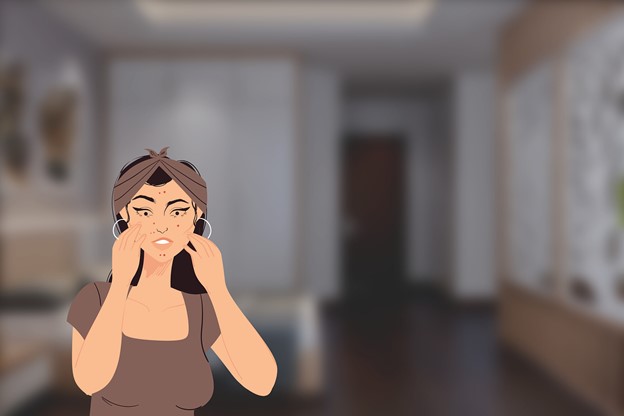How Do Chronic Skin Conditions Impact Daily Life?

Long-term skin illnesses impair relationships, careers, and self-esteem for millions of people all around. Chronic skin diseases make daily therapy more difficult by causing discomfort, itching, and swelling. Lichen sclerosus, eczema, and psoriasis can all be effectively controlled through medication, lifestyle changes, and targeted treatments. Lichen sclerosus treatments call for care. Standard therapies involve strict drug schedules, lifestyle adjustments, and frequent medical visits. Since lichen sclerosus can worsen if neglected, early and consistent therapy is required. Quick therapy preserves skin, regulates symptoms, and improves quality of life.
Psychological and emotional pressure
Chronic skin diseases can also impact emotions, in addition to their numerous consequences. Diseases that damage visible or intimate body parts lead people to feel anxiety, sadness, and low self-esteem. Both shame and criticism can cause social disengagement, activity avoidance, and problems in personal relationships. Chronic pain can affect emotions, sleep, and work. For people enduring medical treatment for chronic skin diseases, stress management, which can be achieved via therapy and support groups, may be just as important as their actual condition.
Alterations in self-care and daily routines
Often, properly managing a chronic skin issue requires adjustments to daily routines. To prevent the symptoms from worsening, it may be necessary to adjust daily routines, such as showering, exercising, or dressing oneself. To reduce heat and tension, people may need to use medical creams or ointments regularly; they should also use particular skincare products. The weighty character of a person’s daily obligations, such as these, may impede their capacity to be spontaneous in their day-to-day existence. Over time, particularly if therapy does not show clear improvements within a short period, the constant need to adapt to a skin condition may ultimately lead to weariness or disillusionment.
Effect on intimacy and relationships
Interpersonal connections can be damaged by chronic skin conditions, particularly those that affect sensitive areas of the body. Genital conditions like lichen sclerosus can cause pain, discomfort, and cosmetic changes that make intimacy difficult or upsetting. Communicating with your partner helps maintain an emotional connection. Without open communication and medical treatment, physical and mental issues can strain even the closest relationships. Education and counselling can help couples and individuals approach these issues with compassion and resilience.
The necessity for comprehensive management
Effective management of chronic skin diseases goes beyond symptom control. It addresses physical health, emotional well-being, and social adaptation. People with illnesses can lead meaningful lives by collaborating with a medical team, exploring new therapies, and fostering a supportive environment. With the right care, knowledge, and emotional support, many patients with chronic diseases can adapt, thrive, and remain positive.
Final thoughts
Chronic skin diseases impair emotional health, relationships, and daily routines, hence influencing many aspects of life. For diseases like lichen sclerosus, quick access to suitable lichen sclerosus therapies and thorough care plans is vital. Although the difficulties are genuine, proactive management and emotional resilience help people maintain their dignity, comfort, and hope in their daily lives.


